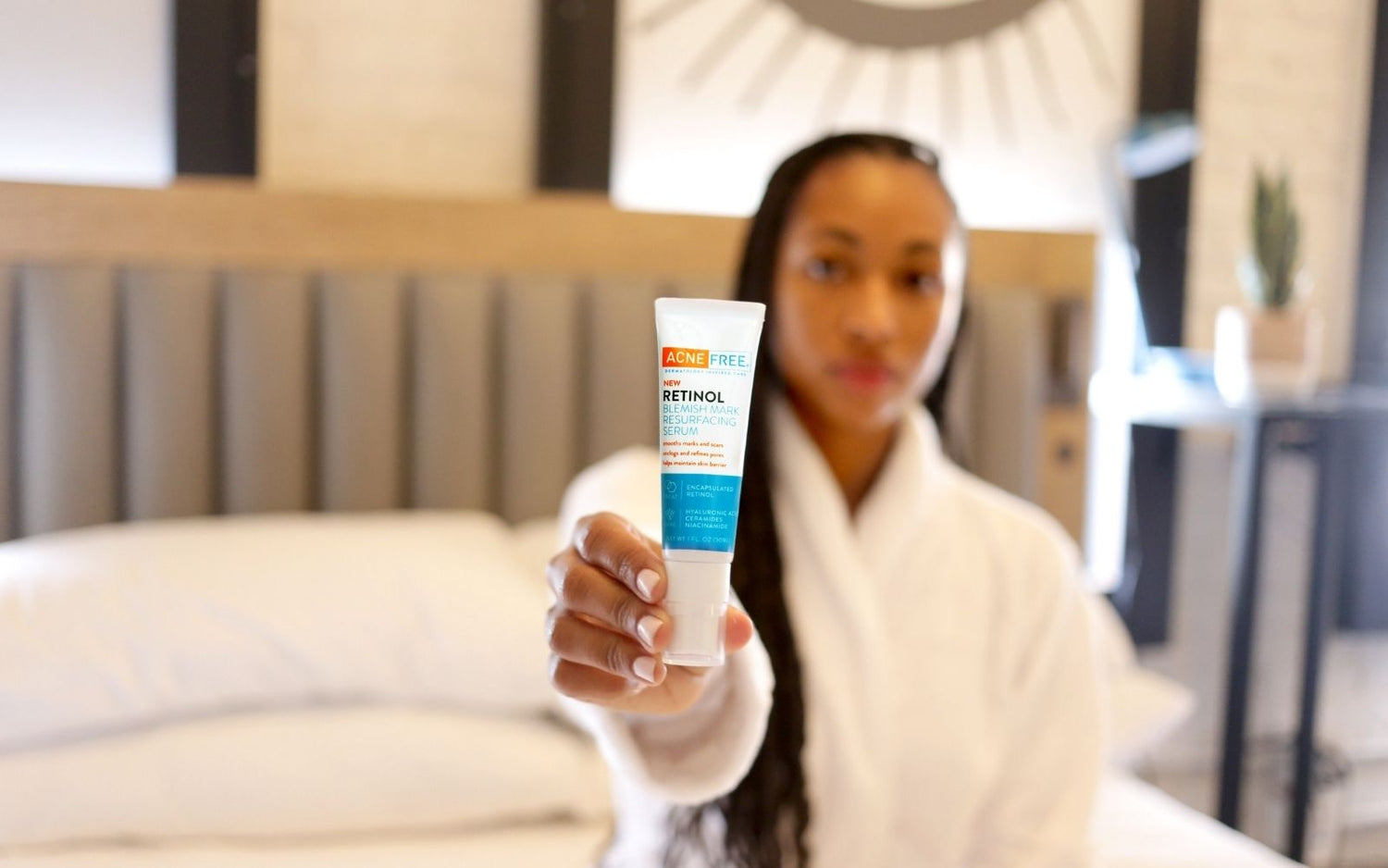
Retinol: The Secret to Smoothing Acne Marks and Scars
Retinol: The Secret to Smoothing Acne Marks and Scars
If you've been scouring the web for tips on how to get rid of those pesky marks and scars that come from acne breakouts, then you may have read a few articles about how retinol may be the solution. And if you've got questions on whether or not this may be the solution for you, we've got the answers.

What is Retinol?
Before we dig into the details, we must cover the basics. What's the magic behind retinol that's got everyone raving about its many benefits? By definition, retinol is a derivative of vitamin A—and while it is most commonly used for anti-aging purposes, it is also frequently used to smooth out acne marks and scars.
Retinol is a form of vitamin A that can improve uneven skin tone and texture by increasing cell turnover and collagen production. By keeping your pores clear by reducing the buildup of skin cells, retinol ultimately reduces the number of breakouts you have as well.

How Does Retinol Help With Acne Marks and Scars?
Because it increases cell turnover, retinol resurfaces the skin to smooth acne marks and scars and even hyperpigmentation while improving its overall texture. Retinol essentially clears the dead cells and makes space for new ones while giving you healthy, even-toned skin by kickstarting the cell turnover process.

Will Using Retinol Make Me Break Out More?
You may have heard of the retinol "purge" or "retinization." For some, retinol may cause some peeling and dryness due to its potency, but the "purge" typically doesn't last long. To avoid any harsh reactions, we recommend that you start slow when adding this ingredient to your acne-fighting regimen. When starting, apply retinol only one to two times a week and gradually work your way up based on how your skin reacts. If the product is causing any redness, dryness, or flaking, you should stop using it and consult your dermatologist.

How often Should I Use Retinol in my Routine?
To avoid dryness or peeling, start applying retinol products two to three evenings a week. Then gradually increase frequency to every other night until your skin feels like it can tolerate it every evening. Always add plenty of moisturizer to your face so that your skin can stay happy and hydrated. And remember, always apply a broad-spectrum sunscreen while using retinol products, as it causes the skin to be more sensitive.
Suppose you are looking for a retinol serum with added moisture to prevent peeling and dryness. In that case, the AcneFree Retinol Blemish Mark Resurfacing Serum is formulated with Hyaluronic Acid for moisture and Niacinamide for an even skin tone.

Retinol Blemish Mark Resurfacing Serum
$14.99

Products
View all

